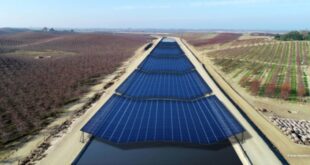Metropolitan Water District of Southern California (MWD) announced yesterday that seven California colleges and universities have been selected to receive $10,000 grants from World Water Forum (WWF) to fund proposals to develop new water conservation and supply technologies for a more sustainable water future. WWF is co-sponsored by the U.S. Bureau of Reclamation, the Sanitation Districts of Los Angeles County, Friends of the United Nations, Water For People in addition to Metropolitan Water.
“Our California colleges and universities are fertile ground to develop the next generation of sustainable technologies,” said Jeffrey Kightlinger, general manager of the Metropolitan Water District of Southern California. “These ideas help ensure water reliability not only in local communities, where they are greatly needed, but also across the globe.”
The colleges and university program that are receiving the grants run the gamut in meeting the objectives of the WWF competition. WWF was created in 2006 when the “International Decade of Fresh Water” was proclaimed by the United Nations to raise awareness about global water issues. The co-sponsors of WWF created a grant competition for local colleges and universities that would promote new water conservation technologies and policies or communications programs. WWF also helps to generate student interest in engineering, environmental science and related careers in the water industry, thereby promoting economic and workforce development.
The WWF seeks teams from California’s colleges and universities to research, develop and communicate water-use efficiency or local supply technologies and strategies that can be employed cost-effectively in water-stressed regions whether locally, regionally or internationally. Through the program, grant recipients must design a project or prototype that will contribute to a more sustainable water future, including developing a business plan and providing evidence of a project that could become fully sustainable.
“World Water Forum inspires students by giving them a direct connection between their class work and the crucial job of ensuring a sustainable water source for the public,” said Benita Horn, who manages the program as part of MWD’s education programs.
This year’s grant recipients include:
- A Loma Linda University School of Public Health project to reduce water contamination in community water wells in Chad.
- Saddleback College (Mission Viejo) researchers who will explore the possibility of using dew and fog to irrigate urban farms and landscapes by installing and studying a dew and fog catchment system at a Laguna Beach park.
- A San Diego State University team project to find a lower cost and less energy-intensive approach to seawater desalination. Researchers will explore using low-grade waste heat to convert seawater to vapor and then condense it to form pure water.
- University of California at Davis researchers who will further develop and test a solar-powered water treatment system that could be used in rural, underserved communities. The system is hyper-localized – treating water either as it enters homes or as it leaves faucets – allowing for the particular contaminants of individual communities to be addressed.
- A University of California at Los Angeles study on the safety of using treated wastewater to irrigate urban parks, and the impact on antibiotic resistance genes.
- A University of California at Riverside effort to develop a more water-efficient scrubber that reduces ammonia emissions in dairy facilities.
- A University of Southern California project to implement a rainwater harvesting system that will capture, filter and store rainwater for a community in Guatemala.
Since its inception WWF has awarded $800,000 to 32 local colleges and universities on projects to advance a sustainable water future. Application for World Water Forum grants will open again in October. Information about the next competition and the WWF program can be found at: http://www.mwdh2o.com/inthecommunity/education-programs/Pages/World-Water-Forum.aspx.
 California Water News Daily Your Source For Water News in California
California Water News Daily Your Source For Water News in California


